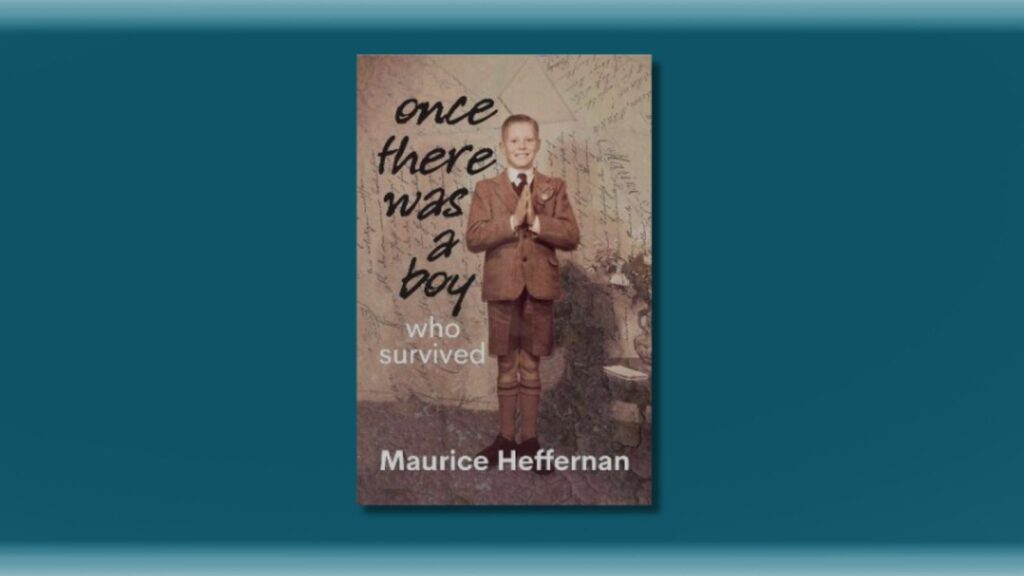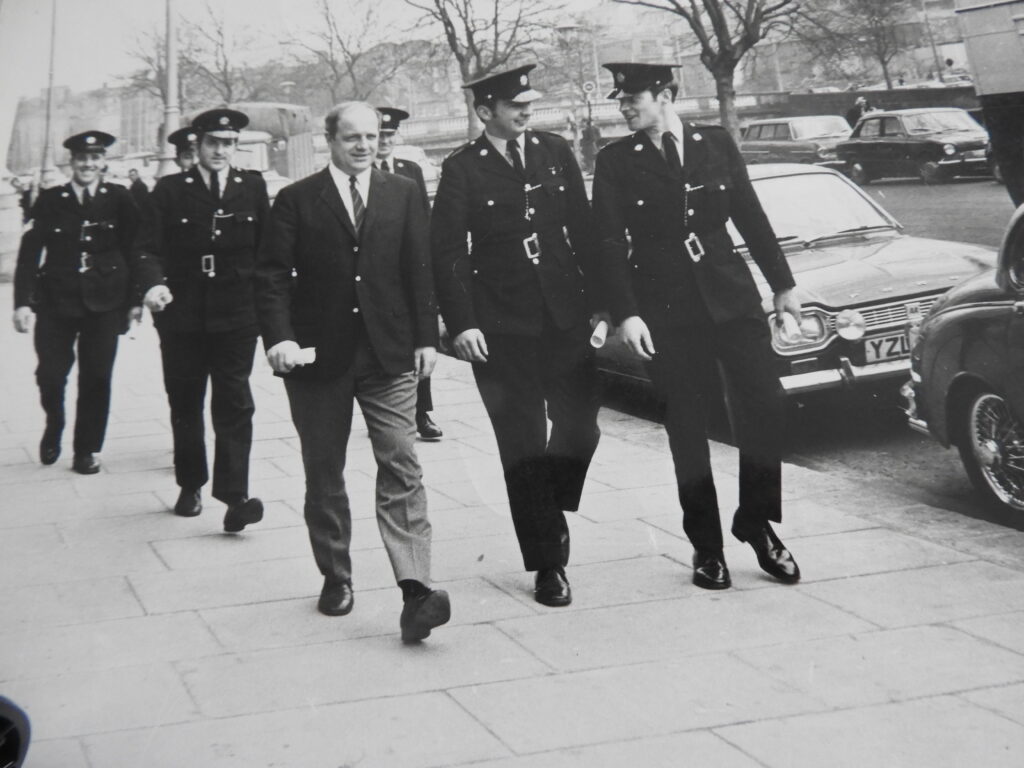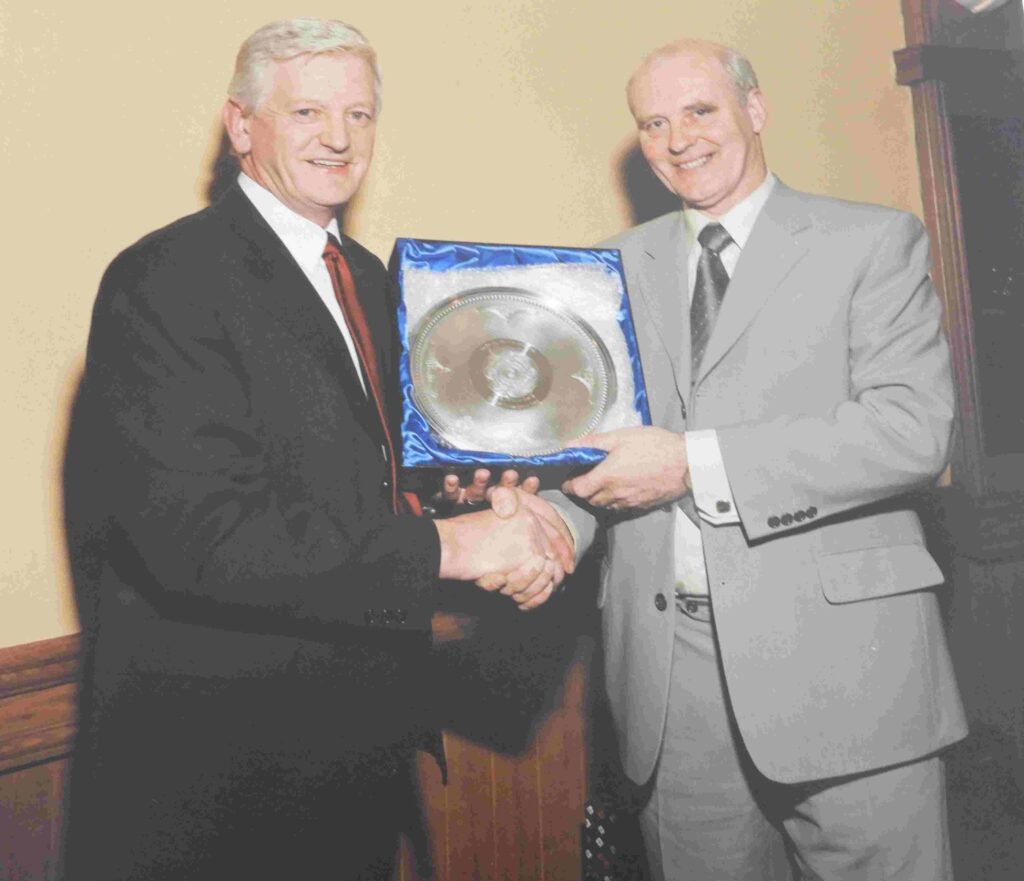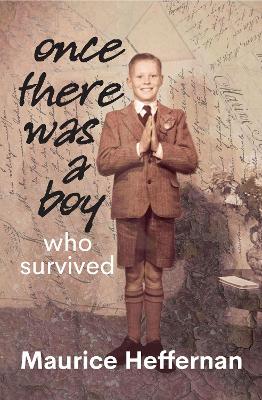
Maurice Heffernan spent the early part of his life in institutions. Once There Was A Boy Who Survived describes his life, including his long career in the Garda Síochána
by Maurice Heffernan
I was living in Malta when the Covid 19 virus began. As a person over 65, I was considered at risk from the virus. I had started to think about putting some thoughts down about my life, and confinement at home gave me the push to write this memoir. My children spurred me on, so too did some friends.
One of my former garda colleagues, John Kelly, told me I was known as a mystery man in the gardaí. To a great extent I was: I hid my early years from those around me, even my own family.
I was born in Ballylongford, Co Kerry, the youngest of ten children, in September 1945. My mother died when I was six months old, at the age of 40. I was brought to an orphanage in Killarney, Co. Kerry shortly after my mother died. For whatever reason, neither the State nor my father (I met him for the first time when I was sixteen and did not speak to him about the reasons) were unable or unwilling to help keep me at home.
For whatever reason, neither the State nor my father were unable or unwilling to help keep me at home
I spent some time with a foster family, called Coffey, in west Kerry. Later, without any explanation, I was transferred to St Joseph’s Residential Institution in Tralee, where I stayed until my mid teens. In the book I describe my life in St Joseph’s and the experiences of others. The experience there was not always good but not everything was bad.
I raise the question as to whether bribes were paid to have me remain at St Joseph’s and how I was refused permission to attend the local secondary school for a more academic education. I also write about sexual abuse at St Joseph’s.
I did not set out to write this book as a ‘whinge’ about the system but essentially to tell my life story to my children and grandchildren. But I believe my story is relevant to 20th century Irish life and history, including my career in the Garda Síochána and my battle to try and get redress for institutional abuse. In many respects I was very lucky. Many others were not so lucky.

I joined the gardaí in the late 1960’s. Before that I worked at various jobs and one included working with the father of former Dublin GAA footballer, Jimmy Keaveney, who was a gentleman. My 33 year career in the Garda Síochána, after initial training at Templemore, started at Chapelizod Garda Station in west Dublin.
I was assigned to the Detective Branch and the Fraud Squad, just six years after joining the force
Gardaí lived at Chapelizod station at the time and members would help homeless people with food and washing facilities. After time at Ballyfermot Garda Station, including dealing with some money laundering cases, I moved to the Crime Task Force, and later joined the Detective Unit as a plain clothes garda. In 1974, I was assigned to the Detective Branch and the Fraud Squad, just six years after joining the force.
I outline many of the cases in which I worked on, including one with a printer involved in forging bank drafts, who was known to be an acquaintance of former Taoiseach, Charlie Haughey. But I also had my battles within the Garda Síochána.
There were many disagreements with superiors, over issues from promotion policy to charging people for offences for which there was insufficient evidence. In 1979, I was promoted to Detective Sergeant and though I passed the Inspector’s exam in 1981, after being urged by colleagues to go for it, I was not promoted beyond that.

In January 1982 I was transferred to the Drug Squad, where I went with a reputation, in the eyes of some, as a ‘trouble maker’. But I got on quite well with its Detective Inspector, Denis Mullins, after explaining my own views on the origin of that ‘trouble maker’ tag. I also travelled abroad as the tentacles of Irish crime were starting to spread beyond our shores. One trip was to Spain to interview a suspect in the growing illegal drugs trade in Ireland.
I also write about how I looked at addiction studies and recommended a more multi disciplinary approach to the problem; this wasn’t welcomed by everyone then but is much more acceptable today.
When the journalist Veronica Guerin was murdered in 1996, I was on the Lucan station based murder team, investigating the crime
In 1986, I was refused permission to travel to Australia to interview a woman who had defrauded a number of Leixlip business people out of money, at least IR£250,000 (Irish punts). To illustrate the value of that money, you could have bought a three bedroom house in a Leixlip suburb for IR£26,000. Crime detection was sometimes hampered by shortage of money.
When the journalist Veronica Guerin was murdered in 1996, I was on the Lucan station based murder team, investigating the crime. Around the same time, another garda, Gerry McCabe, who like me came from Ballylongford and whose father had fixed my bicycle, was murdered. Previously, in August 1984, my friend and colleague, Frank Hand, with whom I was very close, was murdered.
That was hard to take. Around 15 gardaí were murdered during my 33 year career. I retired from the gardaí at the end of 2000.
Apart from telling my story, initially for family, and now the wider public, I hope that policy makers will find useful thoughts because my life revolved around institutions, none of them perfect. In particular, I write about my unhappiness with the Residential Institutions Redress Board in 2011. I recommended a pension system for survivors, many of whom were not as lucky as I was.
Like many, I have spent a good part of my life tracing my siblings, mostly within Ireland and the UK. Four of them, three sisters and a brother, were also put into institutions.
Once There Was A Boy Who Survived, by Maurice Heffernan launches at the Spa Hotel, Lucan, on 14 June












